Some Background Information – The Rice County Public Safety Center:
Minnesota Department of Corrections inspectors had long identified the need for additional housing space in the Rice County Jail, but in late 2019, the department notified county officials it planned to reclassify the jail, allowing it to hold individuals a maximum of 90 days. DOC inspectors also noted the need for additional program and leisure activity space. A reclassification would be costly for the county. According to a 2022 estimate, it would total $1.5 million annually.
In May 2021, the Board of Commissioners voted to build an 83,000-square foot Public Safety Center that includes a 76-bed jail, the county’s Emergency Operations Center, and offices for Rice County Sheriff’s Office staff and the regional drug task force off Hwy. 3 on the northern edge of Faribault.
In July 2022, the board approved the sale of $48.86 million in bonds to finance the project.
Question Text:
Shall Rice County be authorized to impose a three-eighths of one percent (0.375%) sales and use tax for a period of up to thirty (30) years, commencing on April 1, 2025, for the purpose of financing the Public Safety Center at a principal cost not to exceed $48,000,000, plus associated bonding costs and interest? A YES vote means that the majority of the costs would be financed through the sales and use tax which would remain in effect for 30 years or until the bonds are retired, whichever comes first. A NO vote means that the majority of the costs would continue to be financed through property taxes for 30 years or until the bonds are retired, whichever comes first.
SUMMARY
Written by Rice County
The Rice County Board of Commissioners on Aug. 13, 2024, agreed to ask voters whether to pay the debt incurred from the construction of the new Rice County Public Safety Center — set to open in late October — through a .375% sales tax increase. If a majority of voters vote no, the Board of Commissioners will continue using property taxes to repay the debt. If approved, the tax would take effect in 2025 and last a maximum of 30 years, though it would end sooner if the bonds are repaid earlier than anticipated.
By increasing the sales tax, non-residents who shop in Rice County would also contribute to the debt repayment. The local sales tax follows the state sales tax and doesn’t apply to essentials like groceries, medication, baby products, clothing and motor vehicles. If the referendum fails, Rice County will have to pay for the debt through regular Property Taxes, which could lead to future increases.
If funds raised each year exceed the annual debt payment, the county CANNOT spend that money on other projects.
What Your Vote Will Do
Written by the KYMN News Staff
A YES VOTE would increase the Rice County Sales Tax by 0.375% to pay for the debt from building the Rice County Public Safety Center. The funds from this increase can only be used for this purpose.
A yes vote would not increase a sales tax on essential goods like groceries, medication, baby products, clothing, and motor vehicles.
A NO VOTE would not increase Rice County Sales Taxes.
However, a no vote would not stop construction on the Safety Center project (set to open in October). The debt from the project would be paid from the regular property tax levy.
Rice County Commissioners have indicated that without sales tax, future property tax increases for the project would be possible.
FISCAL CONSEQUENCES
Data provided by Rice County
The proposed local sales tax would be 3/8 of a cent or .375%. For example, if someone spent $5 on a cup of coffee, 2 cents would go toward the local sales tax (if approved) or 38 cents on every $100 of taxable purchases for 30 years. This would generate an estimated $3 million each year.
In a study done for Rice County, a University of Minnesota Extension community economics educator estimates nearly 33% of the local option sales tax would come from people living outside Rice County.
On the KYMN Morning Show, Rice County Commissioner Galen Malecha said the following:
“I can’t tell anybody how to vote right that they have to choose on their own, but I myself am going to be voting in favor of it because it takes it off the property tax. If you’re not a high user of good, you won’t be paying a lot.“

